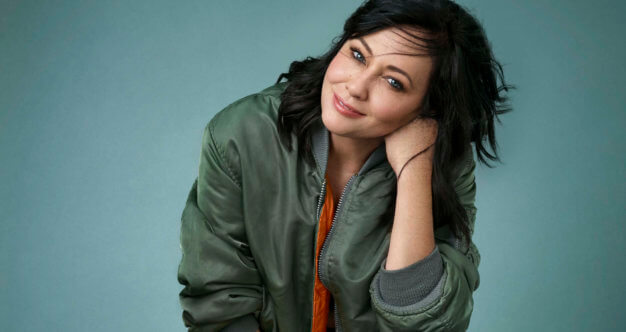Actress Shannen Doherty is opening up about her breast cancer, and about the fears that she, like so many breast cancer patients, has had to overcome.
“There was a lump, and I had a mammogram and then a biopsy. When I got the results, I was in the car with my mom and I just knew,” Doherty tells Health. “The longer I sat, the more it started sinking in. Then I started crying. I called my husband and told him. And from there, I just put together a teamincluding L.A.-based surgeons Dr. Armando Giuliano and Dr. Jay Orringer and oncologist Dr. Lawrence Piro.”
Read MoreShannen chose to have tissue from her body used to recreate the breasts. She talks a little bit about the decision in her interview. “One of my biggest complaints was” she says, “that because my cancer had spread to my lymph nodes, they really had to remove a lot under my armpit. I could almost feel my rib cage, and it was really bothering me. Plus, you have to replace implants, and I want to go under the knife as little as humanly possible. It's a harder surgery, for sure. And afterward, the skin is pulled so tight you feel like it's going to rip open. It's a crazy feeling.”
The specific surgery Shannen chose is called a DIEP flap. A DIEP flap means taking tissue from the belly, according to Dr. Sarah Cate, breast surgeon at Mount Sinai. “It's a big surgery. It's a big recovery, so patients that are very active at their jobs may not be eligible for that surgery, just because they want to get back to work quickly,” says Dr. Cate. “Patients with little kids may not want to do that, because they won’t be able to pick up their child for several weeks following the surgery. Patients that really want to maintain an active lifestyle are probably better off with implants, and it's a conversation that both myself and the plastic surgeon have with the patient.”
“A typical stay for mastectomy is typically one night in the hospital, if you do something like implants or the tissue expanders. If you get the tissue from your own body, that’s typically looking at a two to three-night stay,” says Dr. Cate.
“The hormones I went on threw my body into menopause instantly. My metabolism came to a screeching halt, and I put on a ton of weight,” she says about the impact of all the drugs on her system. “Chemo also put on weight for me. Plus, the chemo and radiation drain collagen right out of your skin, so you age really quickly. For me, the hardest part is the scars. Every time I get out of the shower, I look, and it's like, ‘Oh my God, I'm Frankenstein.'”
The hormonal changes have also had an impact on her ability to have children. “It's not possible [for me to get pregnant] because I can't get out of menopause. That would require estrogen, and I'm choosing not to take hormone pillsI can't risk those levels coming up. [It's thought that higher estrogen levels might increase the risk of a cancer reoccurrence],” she says. “We're having conversations about an egg donor, maybe adoption. But there's fear there. Am I going to last five years? Ten years? I certainly wouldn't want my 10-year-old burying a mother. I've always wanted a kid. But maybe I'm supposed to mother in a different way.”
When asked how cancer’s changed her, Shannen talks about becoming more vulnerable and shedding some of her emotional walls. “I felt more feminine and vulnerable than I've felt in my entire life. I was always used to being the strong one, and during that time period, every wall I'd built up in my life came down. I also had a lot more time to look at myself and say, ‘I'm a pretty OK person’ and cut myself some slack. I've had a lot of those epiphanies. It's OK to stumble.”
Learn more about SurvivorNet's rigorous medical review process.


